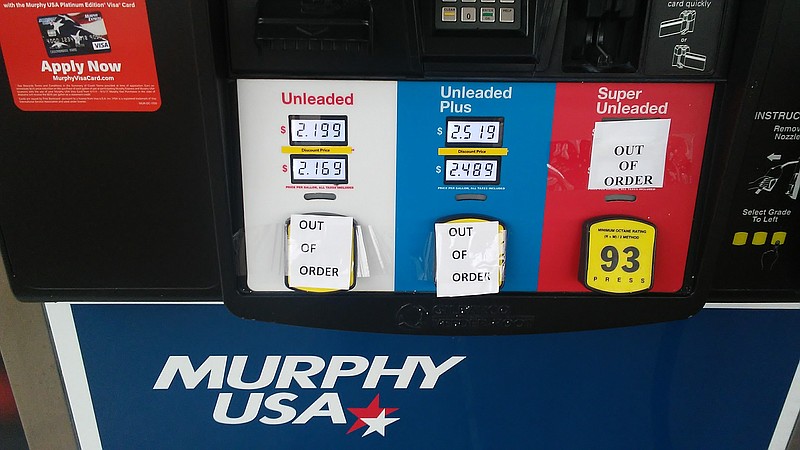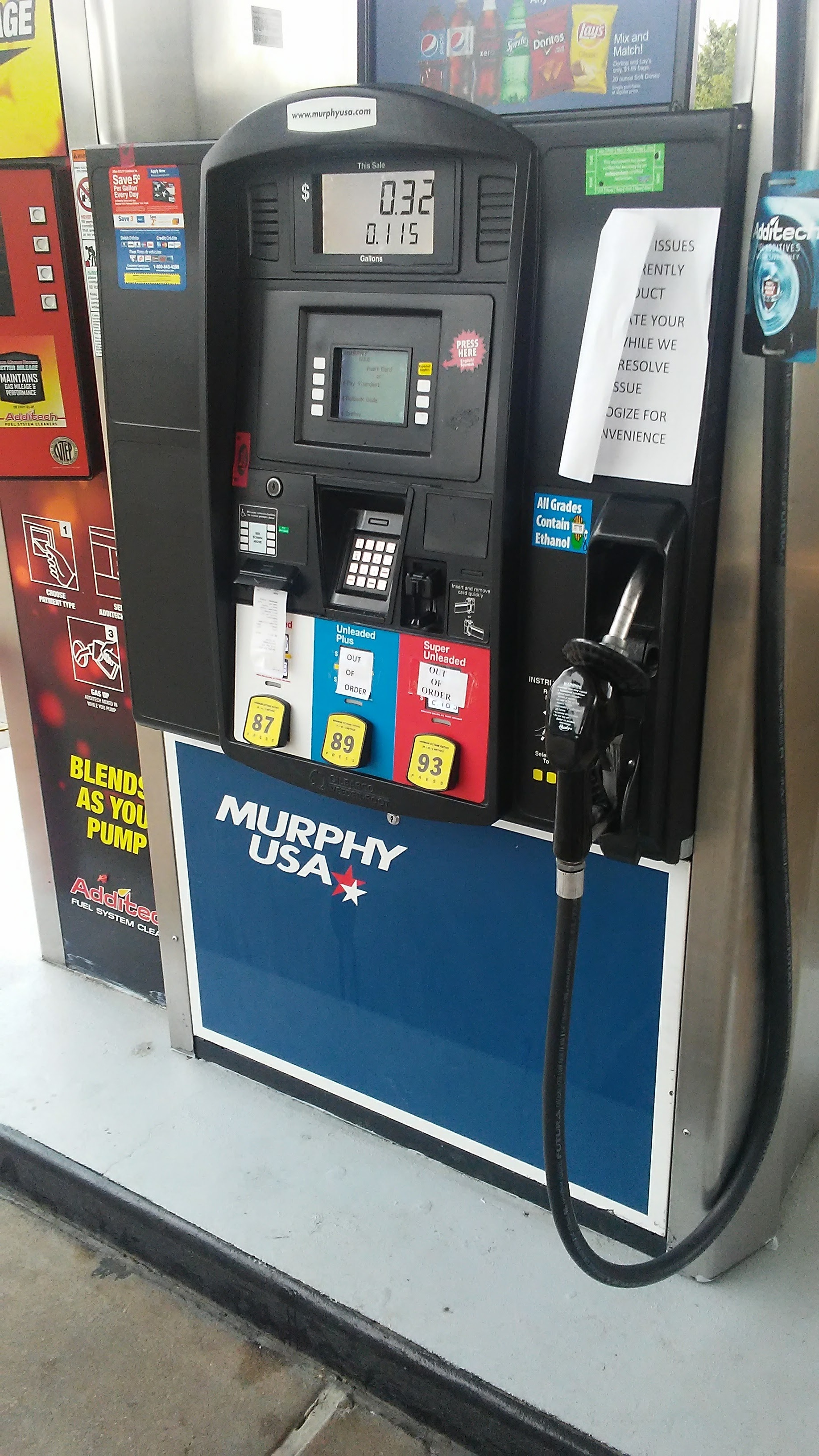When Letitia Barber pulled up to the pump Friday morning at the Highway 153 Walmart Supercenter's gas station in Hixson, she wasn't surprised to learn it had no gasoline to sell.
"It happened with Hurricane Katrina, too," said Barber, who had trouble filling up in 2005 in Virginia when Katrina hit.
The tapped-out gas station was an example of the Harvey's impact on the Chattanooga area - along with higher gas prices before Labor Day weekend.
The U.S. average price for a gallon of regular gas surged to $2.51 early Friday morning, 7 cents higher than the day before, according to AAA, and it marked the first time gas went over $2.50 a gallon since August 2015.
Chattanooga's average price jumped by 8 cents to $2.29 a gallon Friday, up from $2.21 the day before. A week ago Friday, the city's gas averaged $2.08 a gallon, AAA said.
Harvey knocked a quarter of the oil refineries in the United States offline and reduced the flow in the Colonial Pipeline, a 5,500-mile conduit between Houston and New York City that provides about 40 percent of the South's gasoline and has a spur that runs through Chattanooga.
However, drivers should not fret, cautioned Emily LeRoy, executive director of the Tennessee Fuel and Convenience Store Association.
"Everybody should go about their normal business. There's still plenty of stations open with fuel," LeRoy said. "There may be some rolling spot outages. They're temporary."
The smaller Plantation Pipeline that runs from Baton Rouge, La., to Washington, D.C. - and has a spur through Chattanooga - is running full tilt, she said. And tanker trucks are searching out gasoline supplies at other refineries, including in Kentucky and Indiana, LeRoy said.
"There's a refinery in Memphis. Some [gas station supply trucks] may be going to Memphis," she said.
AAA Tennessee spokeswoman Stephanie Milani cited two other boosts to the Volunteer State's gas supplies: the U.S. Department of Energy released 500,000 barrels of oil from the U.S. Strategic Petroleum Reserve and the Environmental Protection Agency issued a waiver to allow the sale of "winter blend" gasoline in Tennessee, Georgia, Alabama and nine other states.
"Not time to panic," Milani said. "There's plenty of gasoline in the United States and the region to supply Tennessee."
"If there are outages, they are going to be the exception rather than the rule," she said. "More than likely, motorists are going to be able to drive to the very next gas station and fill up there."
Milani couldn't say how Harvey would affect motorists' Labor Day travel plans.
"There's no good precedent for this," she said. "It's a bit of a wild card now, whether travelers who first intended to travel, whether they'll still travel."
Some of the stations that have run out of gas buy it on the "spot market," said Jeff Lenard, spokesman for the National Association of Convenience Stores. That's cheaper than a long-term contract when supplies are plentiful, but can leave stations without gas when the supply is tight, he said. Branded gas stations, such as Exxon, Texaco and Shell, typically have supply contracts.
"It's times like these where those that have supply contracts are in a little bit better shape - nobody's in great shape - but they're in a little bit better shape," Lenard said.
News of gas shortages elsewhere, for example in Dallas, has led people to form long lines at stations to top up their tanks, he said.
"Rather than having a shortage causing gas lines, you have gas lines causing shortages," Lenard said. "Social media has a lot to do with it."
No one knows when the interstate fuel production and delivery system will be back to full capacity, he said.
And once refineries get running again, it takes time for them to produce fuel. Then it has to move through pipelines at a speed of about 100 miles a day, or 4 mph.
One reason for that, he said, is that the same pipeline will carry different batches of fuel, for example gasoline followed by jet fuel and then diesel fuel. If the different batches of fuel go too fast through the pipeline, they'll blend together and be unusable, he said.
"About walking pace," is how Lenard described the speed at which fuel moves through the interstate pipelines. "If you want to know how fast it gets from Houston, walk to Houston."
Contact staff writer Tim Omarzu at tomarzu@timesfreepress.com or www.facebook.com/MeetsForBusiness or on Twitter @meetforbusiness or 423-757-6651.

